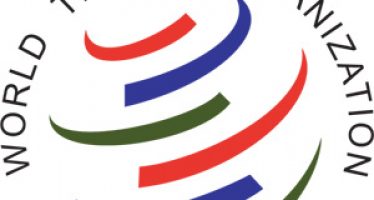African Risk Capacity: African Innovation in Action
 For the third consecutive year, the African Risk Capacity (ARC) won the CFI.co award for the Most Innovative ESG Risk Protection Provider in Africa. The winning streak recognises an inherent quality of ARC that runs through its policy, practice, and identity: innovation. From the beginning, ARC was designed as an innovative solution to a pressing issue – climate disasters in Africa – and the institution has continued forging new paths forward through research and collaboration.
For the third consecutive year, the African Risk Capacity (ARC) won the CFI.co award for the Most Innovative ESG Risk Protection Provider in Africa. The winning streak recognises an inherent quality of ARC that runs through its policy, practice, and identity: innovation. From the beginning, ARC was designed as an innovative solution to a pressing issue – climate disasters in Africa – and the institution has continued forging new paths forward through research and collaboration.
The Problem
According to the World Bank, global economic losses due to adverse natural events were estimated at $4.2 trillion between 1980 and 2014. These losses increased from $50 billion a year in the 1980s to nearly $200 billion a year in the last decade. Presently, global economic losses average to nearly $300 billion a year with almost 75% of the losses attributable to extreme weather events.
Paired with increasing losses from natural disasters is an increasing humanitarian funding gap. In 2017, the amount of funding received was $11.6 billion short of the $23.5 billion required to respond to the needs of 93 million people – nearly a 50% funding gap. This was a dramatic increase from the $4.4 billion required a decade earlier, which received 85% of the necessary funding to save and protect populations impacted by natural disaster and conflict. As climate change creates more frequent and catastrophic natural disasters, the traditional humanitarian funding model will continue to be strained as needs outpace resources.
ARC offers a sustainable solution to the systematic challenges in disaster risk financing faced in Africa. Established as a Specialized Agency of the African Union, ARC helps African governments to better plan, prepare, and respond to natural disasters across the continent by using innovative technology, financial tools, and practices.
How ARC Works
ARC is comprised of two entities: ARC Agency is an African Union institution that builds the disaster risk management capacities of African governments, and ARC Insurance Company Limited (ARC Ltd) is a mutual insurance company owned by capital contributors to the risk pool, including African governments holding insurance policies.
ARC Agency bolsters the abilities of African governments and local experts to quantify their disaster risk to certain perils, create contingency plans for the rapid utilisation of resources, and transfer disaster risk through different means such as insurance. ARC workshops break down silos to foster coordination between policymakers in agriculture, climate change, disaster management, and finance, thereby facilitating an efficient disaster response before a crisis occurs. After thorough capacity building, governments are eligible to purchase an insurance policy from ARC Ltd that would cover their losses against transferred risk each agricultural season.
ARC Ltd offers parametric insurance policies that deliver rapid payouts based on objective thresholds selected by the government. Throughout the growing season, parameters such as rainfall are monitored through Africa RiskView, ARC’s proprietary software that quantifies risk and translates them into the costs of humanitarian intervention. Once the risk threshold is crossed, payouts are disbursed immediately. Because the insurance policies are linked to predetermined contingency plans, responses are implemented quickly. Through the monitoring in Africa RiskView and predictable contingency-linked capital, ARC offers a comprehensive disaster risk management package that provides early warning, early planning, and early financing.
Disrupting the Humanitarian Status Quo
The existing model of humanitarian assistance typically involves a lengthy appeal process launched by governments to the international community after the occurrence of the natural disaster. As the crisis progresses, governments wait for capital that may arrive long after countless lives and livelihoods are lost – if funding is received at all. The ARC model disrupts the current state of humanitarian funding in Africa by offering an alternative for governments to proactively address disaster risk and receive predictable financing to launch a rapid national response when a natural disaster occurs. ARC opens access to capital at critical early moments before disaster response costs grow exponentially. Studies estimate that every dollar spent through ARC on early action saves $4.40 dollars in humanitarian assistance spent after a crisis unfolds.
Cutting-Edge Technology
Africa RiskView is the technical software underpinning ARC’s comprehensive disaster risk financing package. Using satellite rainfall data, Africa RiskView enables countries to identify and map the populations most vulnerable to drought events and monitor the predicted impact of rainfall on agriculture throughout the growing season. Because the impact is measured in a dollar amount, Africa RiskView empowers governments to respond more efficiently to disasters by providing an integrated platform that enables governments to plan ahead, monitor risk, access financing through insurance, and respond quickly to affected populations when disaster strikes.
ARC works continuously to develop the precision and coverage options in Africa RiskView. Different rainfall indexes, additional parameters like the effect of ground temperature, and features specialising in pastoral rangeland are being explored to create a more robust monitoring and insurance tool. Moreover, as ARC develops risk transfer tools for more perils, such as river floods, tropical cyclones, and outbreaks and epidemics, Africa RiskView will expand its features to manage more types of disaster risk in Africa.
Iterative, Responsive, and Collaborative
A dedication to learning and improvement lies at the core of innovation. ARC ensures that a cycle of learning, evaluation, and development are built into its work with Member States and partners. ARC hosts regional workshops among its Member States to share knowledge across borders and collectively confront the borderless impacts of climate change. Results of these workshops and the ARC Conference of Parties prompt the adaption of the ARC programme and development of new products to meet Member States’ needs. The pilot programmes for river flood, tropical cyclone, and outbreaks and epidemics were initiated at Member States’ requests to address prevalent catastrophic perils. Evaluations from ARC’s donors – the UK, Germany, Canada, Sweden, Switzerland, and the Rockefeller Foundation – feed back into streamlining ARC’s process. Collaborations with our implementing partners are also essential in improving ARC’s product development and expanding insurance coverage across Africa. Partnerships with the African Development Bank, the UN Economic Commission for Africa, the AMES and others will lead to new innovations for responding to disasters earlier and more sustainably with African interests and minds at the core.
You may have an interest in also reading…
Motsepe: First African to sign the Giving pledge
Patrice Motsepe, aged 51, is a South African mining magnate born in Soweto who is now reputed to be the
WTO Forecasts Gradual Recovery Despite Cut in Trade Forecasts
World trade growth in 2013 and 2014 is likely to be slower than previously forecast. WTO economists now predict 2013
Otaviano Canuto, IMF: Whither Emerging Markets Foreign Exchange Reserves
After a exponential rise in foreign exchange reserves accumulation by emerging markets from 2000 onwards, the tide seems to have

















































































